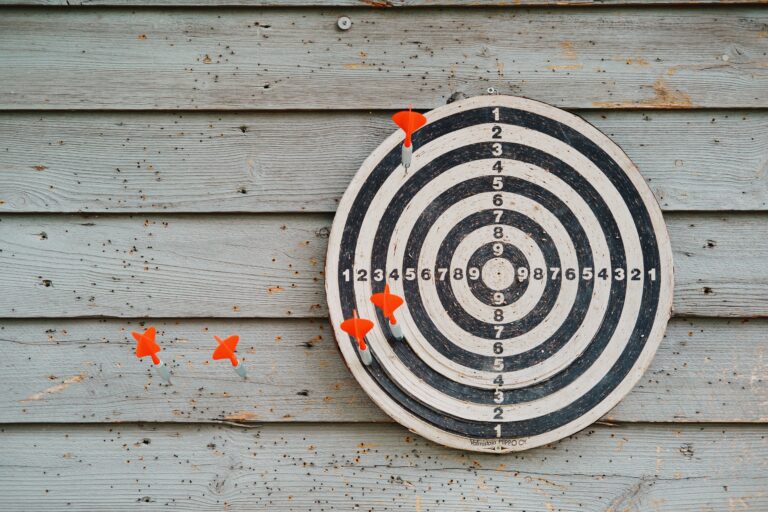In today's episode of 7 Good Minutes, we're uncovering the truth about the blame game. Join us as we explore why pointing fingers only leads to a dead end, keeping you stuck in a cycle of discontent. Instead, we'll show you the liberating power of taking responsibility, embracing lessons from mistakes, and moving forward with purpose and positivity. By the end, you'll discover how to shift from the blame game to a winning mindset that sets you up for true success and fulfillment. Don't forget to subscribe, rate, and share with a friend or two!
In this enlightening segment, Clyde Lee Dennis discusses the futility of the blame game and presents a powerful experiment that can change your life. Rather than blaming others or external circumstances, Dennis urges viewers to focus on taking control and finding solutions. Blame may hinder personal growth and sabotage ambition, so he encourages listeners to shift their mindset, embrace responsibility, and take action. With this shift, even in the face of barriers and challenges, individuals can achieve success and happiness. Join Dennis on this journey to uncover the truth behind the blame game and start living a more fulfilling life.
Why blame leads to a dead end
Blaming others is a common habit that many of us fall into when faced with difficult situations or unhappy outcomes. It can be tempting to point fingers and assign fault to others when things go wrong, but this mindset ultimately leads to a dead end. Blame serves as a tool of diversion, keeping us from truly examining our own role in the situation and hindering personal growth and development. By understanding the cycle of discontent and unaccountability that blame perpetuates, we can learn to take responsibility for our actions and embrace the lessons from our mistakes. This shift in mindset allows us to move forward with purpose and positivity, replacing blame with a winning mindset that fosters ambition and action. In this article, we will explore the effects of blame on individuals and relationships, and discuss strategies for overcoming blame and cultivating a more proactive and constructive approach to challenges.
Blame as a tool of diversion
Blaming others is often used as a way to divert attention away from our own shortcomings and mistakes. When faced with failure or disappointment, it can be uncomfortable to acknowledge our own role in the situation. Blame allows us to shift the focus onto someone else, effectively dodging any responsibility for the outcome. This diversionary tactic may provide temporary relief from feelings of guilt or shame, but in the long run, it prevents us from engaging in genuine introspection and learning. By avoiding accountability, we rob ourselves of the opportunity to grow and improve. This is why blame ultimately leads to a dead end, keeping us stuck in a cycle of denial and stagnation.
The cycle of discontent and unaccountability
Blaming others creates a vicious cycle of discontent and unaccountability. When we constantly point fingers at external factors or other people for our failures, we enter a state of victimhood. This victim mindset robs us of our power and agency, making us feel helpless and trapped. We become passive observers in our own lives, waiting for someone or something else to fix our problems. This lack of accountability perpetuates a cycle of discontent, as we continue to blame others without taking any action to change our circumstances. In this state, personal growth and progress are impossible, and we remain stuck in a perpetual cycle of blame and dissatisfaction.

The power of taking responsibility
The first step in breaking free from the cycle of blame is to take responsibility for our actions and choices. By acknowledging our role in a situation, we empower ourselves to make positive changes and learn from our mistakes. Taking responsibility requires us to confront our flaws and weaknesses, which can be uncomfortable. However, it is through this introspection that we gain valuable insights about ourselves and our behavior. Accepting responsibility is a powerful act of self-awareness and growth, as it allows us to move forward with purpose and intention. Instead of being passive victims, we become active participants in our own lives, taking control of our actions and ultimately shaping our own destinies.
Embracing lessons from mistakes
Mistakes are an inevitable part of life, and blaming others for our mistakes only hinders our ability to learn and grow from them. When we shift our mindset from blame to personal responsibility, we open ourselves up to the valuable lessons that mistakes can teach us. By embracing these lessons, we gain wisdom and insight that can inform our future decisions and actions. Rather than dwelling on past failures, we can use them as stepping stones towards future success. Each mistake becomes an opportunity for growth and development, as we learn to navigate challenges and make better choices moving forward. Embracing the lessons from our mistakes allows us to cultivate resilience and adaptability, qualities that are crucial for personal and professional growth.

Moving forward with purpose and positivity
Once we have accepted responsibility for our actions and embraced the lessons from our mistakes, we can move forward with purpose and positivity. In this new mindset, challenges are seen as opportunities for growth and self-improvement. Instead of dwelling on setbacks, we focus on finding solutions and taking proactive steps towards our goals. This positive outlook allows us to maintain motivation and momentum, even in the face of adversity. By shifting our focus from blame to personal agency, we become drivers of our own success. We are no longer held back by external circumstances or the actions of others, but rather empowered to overcome obstacles and create the life we desire.
Shifting from blame to a winning mindset
Shifting from a blame mindset to a winning mindset requires conscious effort and practice. It begins with self-reflection and an honest assessment of our own beliefs and patterns of thinking. Are we quick to assign blame? Do we take responsibility for our actions? By bringing awareness to these tendencies, we can start to challenge and reframe them. Instead of looking for someone to blame, we can focus on finding solutions and learning from each experience. Adopting a growth mindset, which emphasizes the belief that intelligence and abilities can be developed through dedication and hard work, is also crucial in shifting away from blame. By viewing failures as opportunities for growth and improvement, we can cultivate resilience and a positive attitude towards challenges.

The effects of blame on ambition and action
Blame has a detrimental effect on both ambition and action. When we constantly blame others for our setbacks and failures, we relinquish our power to take control of our own lives. Our ambition dwindles as we become resigned to a victim mentality, believing that external factors are responsible for our lack of progress. This lack of ambition further perpetuates the cycle of blame, as we continue to avoid taking action and instead passively wait for change to occur. By letting go of blame and taking personal responsibility, we regain our motivation and drive to pursue our goals. We become active participants in our own lives, taking decisive action and seizing opportunities that come our way.
Overcoming blame in relationships
Blame can be particularly destructive in relationships, creating a toxic dynamic that erodes trust and communication. When we blame our partners or loved ones for issues within the relationship, we create distance and resentment. Blame places the focus on finding fault rather than finding solutions, which leads to a breakdown in understanding and closeness. In order to overcome blame in relationships, open and honest communication is key. Instead of assigning blame, it is important to approach challenges as a team and work together to find solutions. Taking responsibility for our own actions and emotions is crucial, as this allows us to address conflicts with empathy and understanding. By fostering a blame-free environment, we create space for growth and deeper connection within our relationships.
Conclusion
Blame may provide temporary relief from feelings of guilt or shame, but ultimately it leads to a dead end. By shifting our mindset from blame to personal responsibility, we empower ourselves to learn and grow from our mistakes. Taking responsibility allows us to move forward with purpose and positivity, embracing the lessons that each experience has to offer. By adopting a winning mindset and overcoming blame, we can cultivate ambition and take action towards our goals. In relationships, letting go of blame creates an environment of trust and understanding, fostering deeper connection and growth. Blame may be tempting, but it is the ability to take responsibility that truly sets us free. So, let go of blame, embrace personal accountability, and watch as your life transforms for the better.


